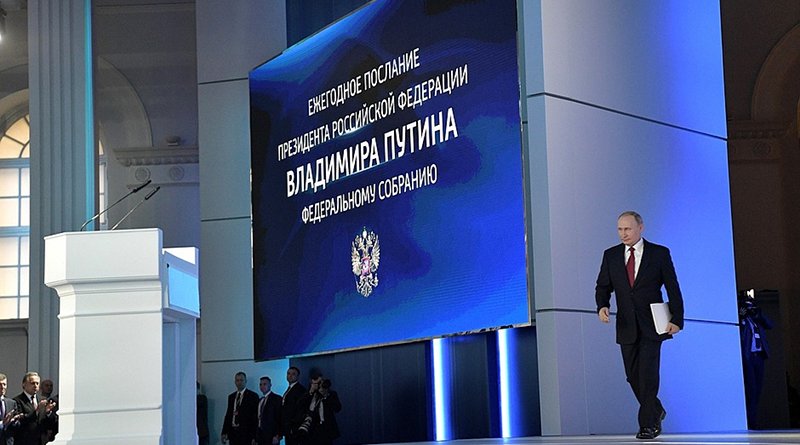Pandemic Has Helped Putin Recover Support For Constitutional Amendments – OpEd
By Paul Goble
Initially, Russians generally supported the constitutional amendments because they saw them as opening the way for a better life and preventing social changes they opposed, Denis Volkov says; but then, many even among those who support Vladimir Putin now swung against them because of the amendment that would allow him to remain president forever.
But the pandemic with its quarantine and economic dislocations has refocused attention on the social side of the amendments and reduced attention to the annulling of presidential terms, the deputy director of the Levada Center say; and as a result, Russian public opinion again has become more favorable to the constitutional changes (carnegie.ru/commentary/82065).
As a result of the pandemic and its consequences, he argues, “the authorities have gained time to calm public opinion and have sought to distract the attention of people from ideas about the annulling of terms.” They have gained both from the obscure language of that amendment and the inability of Putin opponents to decide to boycott the referendum or vote against.
The authorities have exploited this to shift the attention of most Russians back to the social and ideological changes the new amendments call for, even if the Kremlin’s primary goal remains the annulling of presidential terms so that Putin can remain in office until 2036. And over the last six to eight weeks, the powers that be have succeeded in achieving their goal.
The quarantine and the ban on mass meetings left the opposition divided over what to do and made it even less likely that their arguments would continue to resonate with others, Volkov says. And consequently, while the quarantine was on, they lost ground even as the Kremlin gained.
But the challenge for Kremlin was to set a date for the vote as soon as the quarantine ended lest opinion change in the other direction. That is what Putin appears to have done.
In this situation, Volkov continues, “the opponents are demoralized and they mostly intend to remain at home. As a result, while among the population as a whole, the majority for the amendments – 44 percent for against 32 percent against as of the end of May – among those who intend to vote, it is much more convincing – 55 percent against 25 percent.
Obviously, things could change before the vote; but there is relatively little time to reverse this return to the earlier pattern of support and the bases for that support the amendments had prior to the onset of the pandemic, a conclusion that is supported by considering the way in which Russians shifted on the amendments earlier.
At the start of 2020, many Russians felt that the constitution could and should be changed, with approximately 75 percent taking that view. Only 15 to 16 percent were opposed at that time. Most had never paid much attention to the basic law but felt that if there were changes calling for more support for the population, they would benefit.
Putin initially stressed the social and ideological aspects of the changes he sought, and 80 to 90 percent of Russians supported them. “The powers that be said precisely what people wanted to hear,” and the latter ignored the political amendments about the State Council and annulling of presidential terms.
They were “quite cynical” about all this: About half of all Russians already in January were confident that the constitution was being rewritten to benefit Putin; but they believed that at least some of the changes would help them as well. And their support reflected this calculation: “let the powers change the political part of the constitution if they add social guarantees.”
This situation changed only when the powers and the people began to focus on the annulling of presidential terms. That split society into two halves, with Putin’s supporters backing that change, and his opponents opposing. It seemed for a time that the opponents had a change to threaten a majority for the amendments.
That division was “the result of the lengthy process of the decline in Putin’s popularity. The majority as before rate his current activity quite highly and recognize his former services, but the last two or three years the share of those who would like to reelect him has gradually fallen.”
“Today,” Volkov says, “Putin’s electoral rating does not exceed a third of the population,” less than half of the share of Russians who voted for him in 2018. If annulling the restrictions on presidential terms was the only issue, it would lose; but the pandemic appears to have refocused Russians on the social and ideological issues, giving him a good chance to win.

